Families separated by US-Mexico border embrace in emotional 'hugs not walls' 4-minute reunions
Family members were given four minutes to see and hug each other again.
— -- Sitting at her home in El Paso, Texas, a 24-year-old woman looked longingly at a photo of her older sister from when she was in middle school.
The sisters only live about seven miles apart, but they haven’t seen each other in a decade because a life-changing obstacle stands between them -- the U.S.-Mexico border.
About 10 years ago, the woman ABC News has chosen to call “Debora” and her family came to the U.S. from Juarez, Mexico, illegally – because of this ABC News has changed the names of the characters in this story.
“I was barely 16 when I came,” she said.
Debora’s older sister “Gloria” was caught by border police and deported. Her daughter, “Cristina,” who was a little girl at the time, made it into the U.S. to live with her grandparents. Cristina is now nearly 15 years old and hadn’t been able to hug her mother since.
Earlier this week, Debora, Cristina and the rest of their family got the chance to reunite with Gloria and other family members again for the first time in a decade. The reunion was part of an event called “Hugs Not Walls,” in which divided families can see each other in person, some for the first time in decades.
Strengthening the U.S.’s southern border has become a battle cry for President Trump, who made a promise early in his campaign to build a wall along the U.S.-Mexico border. Just last week, the president doubled down on his pledge to build the wall by signing an executive order.
“We have to build the wall,” he told ABC News’ David Muir in an interview last week. “We have to stop drugs from pouring in. We have to stop people from just pouring into our country. We have no idea where they’re from. And I campaigned on the wall. And it’s very important. But that wall will cost us nothing.”
Many worry that President Trump may remove some of the immigration protections President Barack Obama put in place for so-called “Dreamers,” the name for undocumented immigrants who came to the country as children, people like Debora.
“They can deport us anytime they want,” Debora said. “They have all of our information of us and we can’t do anything about it. ... I’m a Mexican and I’m proud to say it, but I’m also proud to say that I am an American.”
El Paso, Texas, and Juarez, Mexico, are separated by a barbed wire fence and the Rio Grande.
“It’s tough, knowing that it’s just a fence across the street, it’s tough,” Debora said.
Debora, her family and thousands of others in similar situations were given a precious chance over the weekend to reunite briefly with their relatives in Mexico. They were among nearly 6,000 people who showed up for the “Hugs Not Walls” event.
“I feel good. I feel happy. I’m good but I’m excited to see,” said Debora’s mother in Spanish.
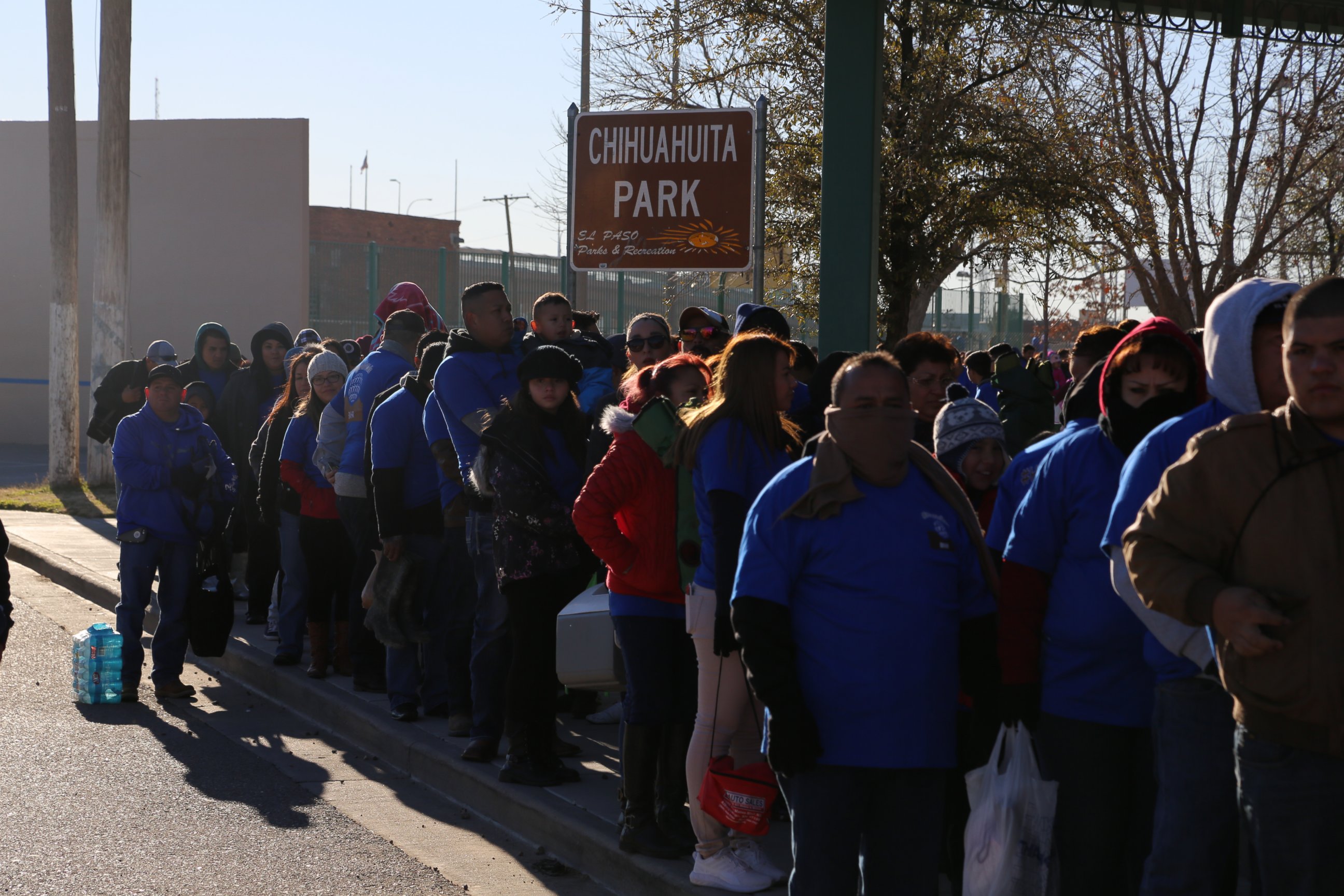
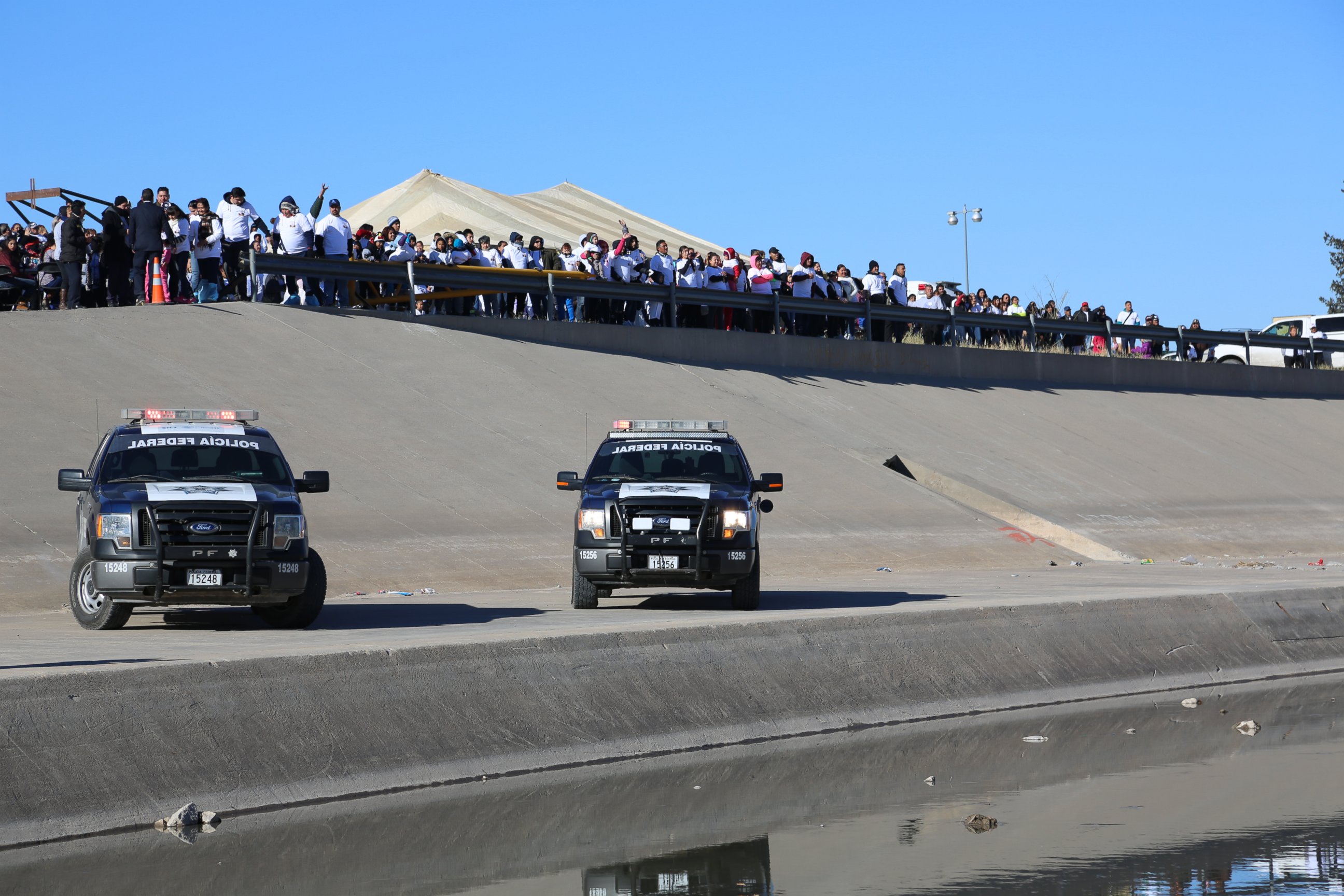
The event was sanctioned and protected by U.S. Customs and Border Patrol, and despite the fact that many of those living in the U.S. do not have proper documentation to be in this country, the “Hugs Not Walls” event was focused on compassion.
“This is an event of humanity and love,” said Fernando Garcia, the executive director of Border Network of Human Rights, which hosts “Hugs Not Walls.” “This primary goal is to bring together those families that have been separated, but it’s important to say that also it is an act of protest - because we need to bring attention to those families that have been in detention, deported and separated of their family members.”
Families waited in line to meet each other in the muddy middle of the Rio Grande, which is cross-able this time of year. Those from the Mexico side were given white t-shirts to wear while those living on the U.S. side were given blue t-shirts.
“We are not breaking the law,” Garcia said. “Nobody's crossing either side. Everybody is staying right at the middle of the river… They cannot give each other anything. They cannot cross to the other side. So I think we’re following every rule and we are responsible for that.”
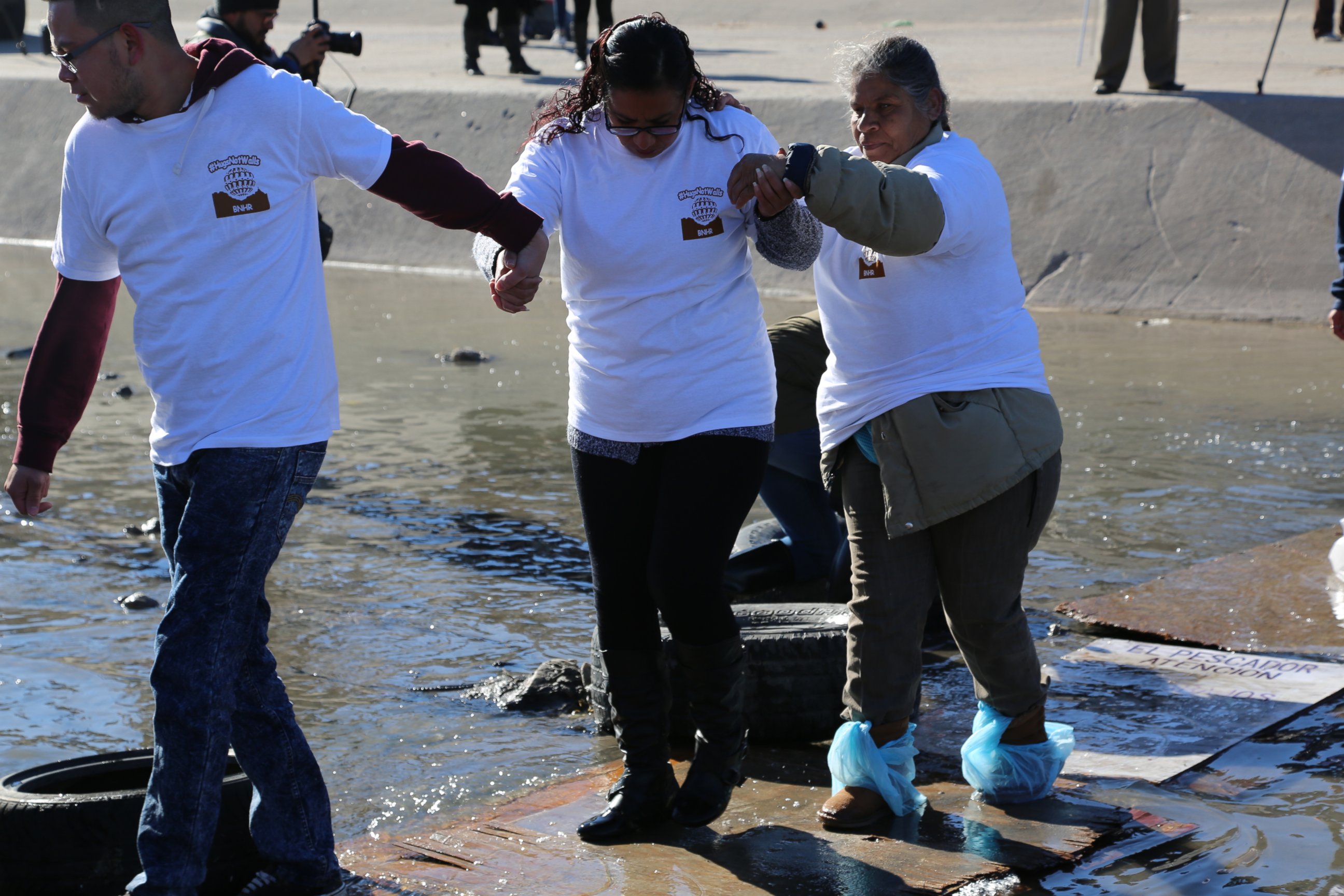
They are only given four minutes to see and embrace their loved ones. Some came from as far away as Chicago and Colorado for the chance to be able to touch their closest relatives again. One family said they hadn’t seen each other in 27 years.
“We would wish that we could give more time to the families, but we cannot afford that,” Garcia said. “There are a lot of families waiting to participate and to reunite for a few minutes.”
As the tearful reunions continued, a woman saw her father’s graying hair for the first time. A young man celebrated his birthday with his family for the first time in years. Another man came from Las Cruces, New Mexico, and said his family drove 11 hours to get there.
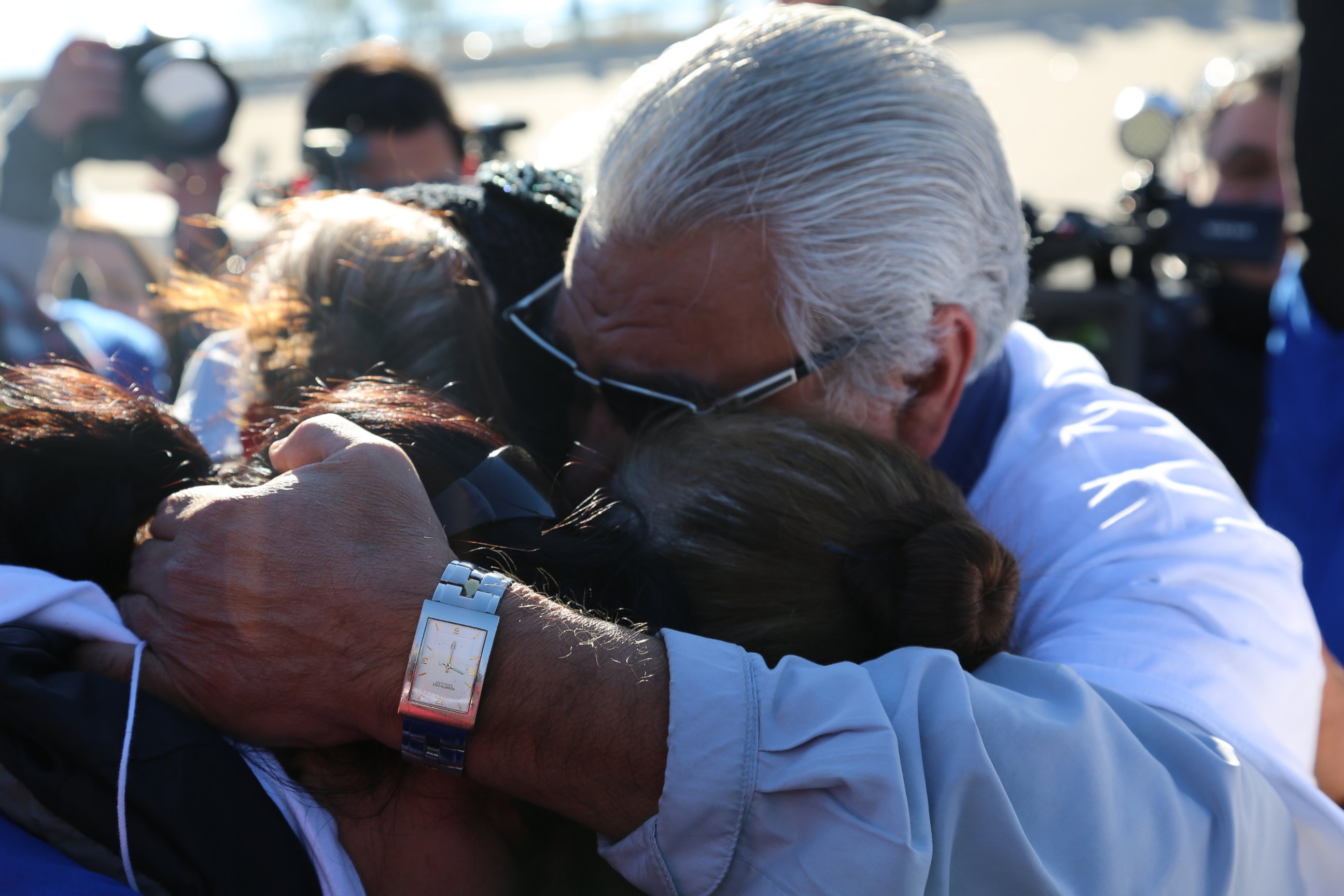
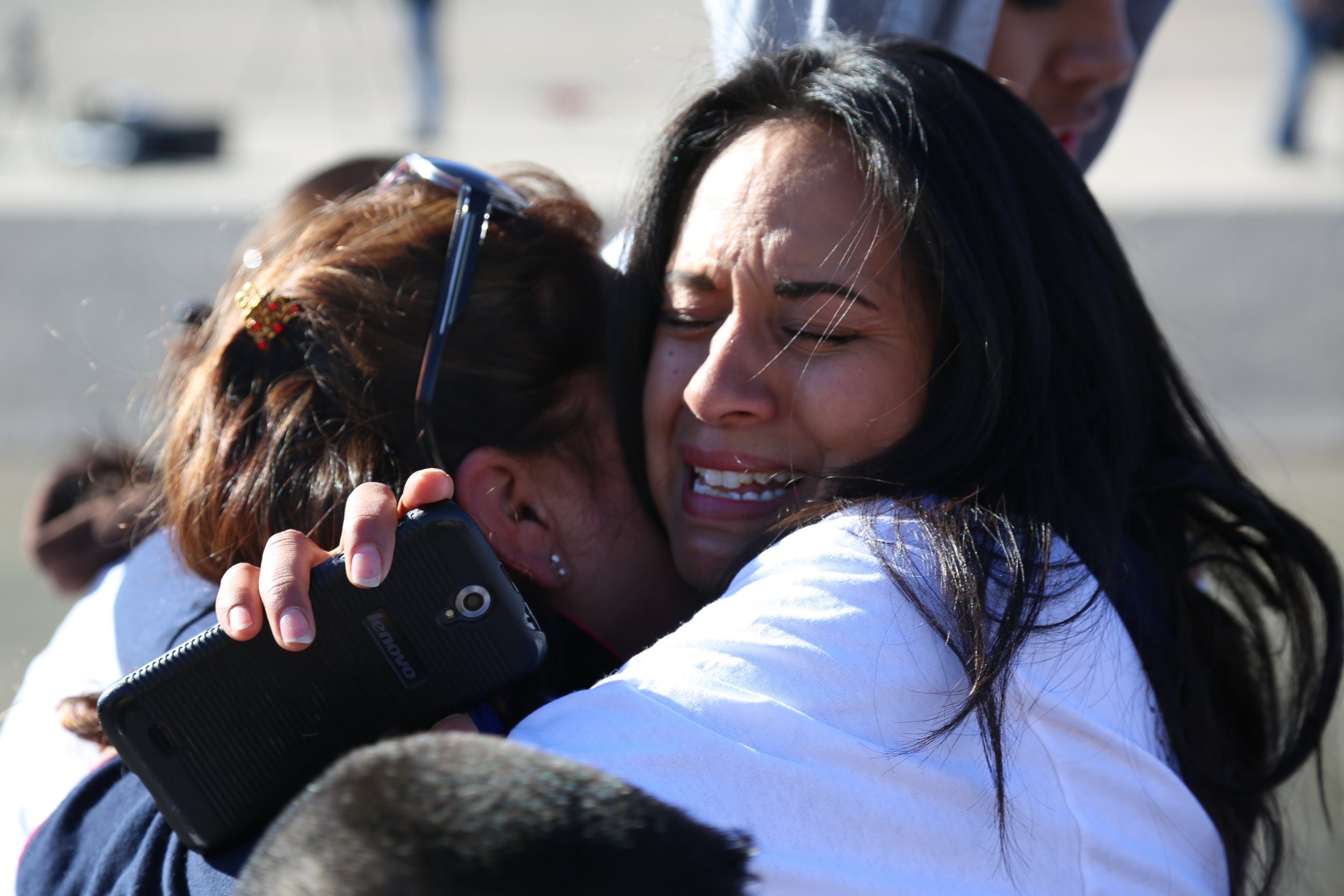
A man named "Miguel" said he was meeting his grandparents and one of his aunts, whom he hadn’t seen in 15 years. He had mixed emotions beforehand.
“It’s a hard moment,” Miguel said. “You just want to go over and hug them. It’s been too long. I just love them, want to be with them. … It’s really emotional inside.”
Afterward, Miguel was elated and said he didn’t mind the reunion being so short.
“It was an awesome experience,” he said. “The thing that really matters to me is to know that they’re still here for us, that no matter what the distance is, they still are with us.”
Debora, her mother, brother and niece -- Gloria’s daughter -- waited for hours to see her sister, aunts, an uncle and a cousin. Tears flowed between them all as they embraced. For four minutes, their family was complete.
“It was amazing,” Debora said afterward. “It was just all my family and it was like, ‘Already, it's over? Are you serious, it’s over already?’”
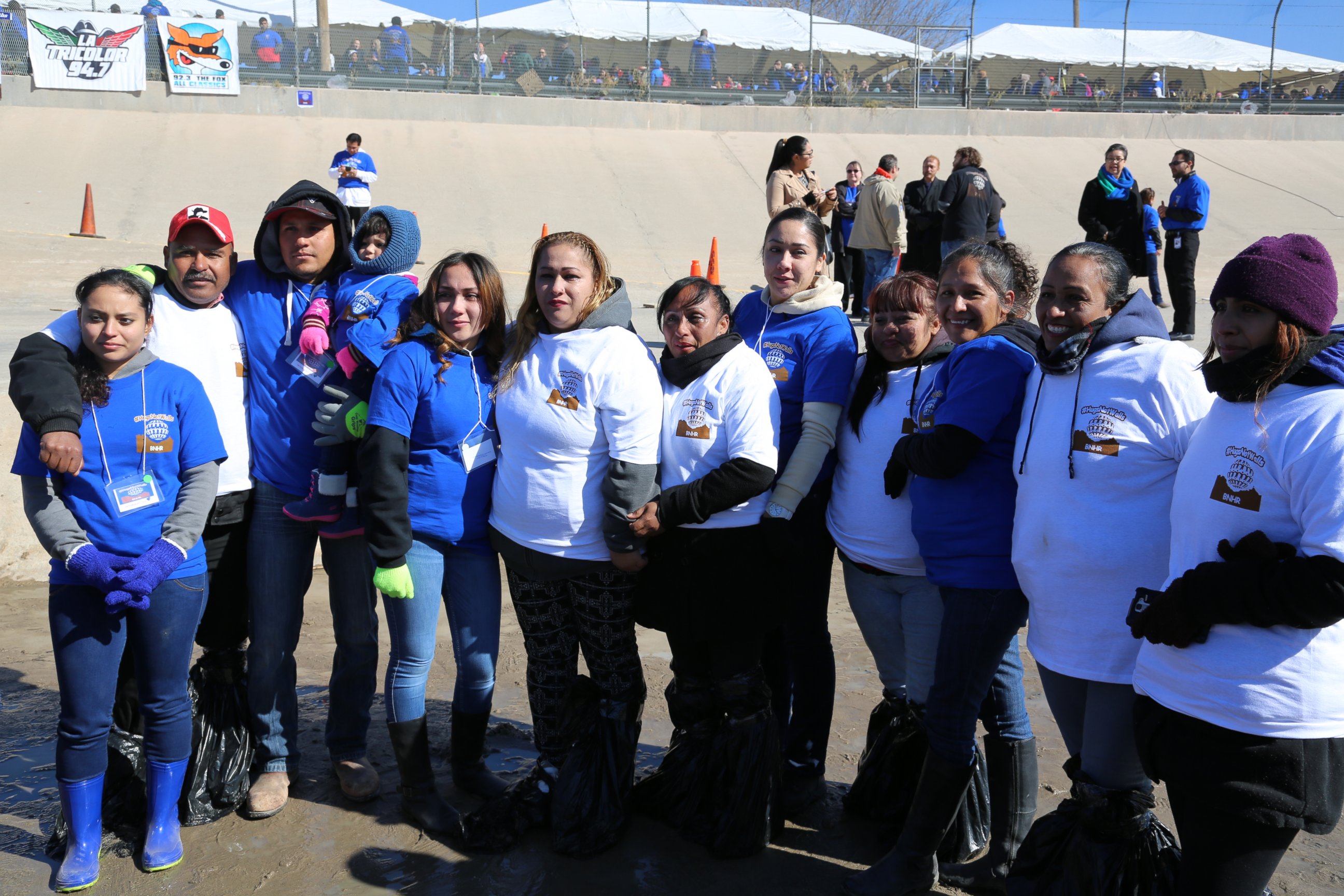
Debora is married to an American citizen and is currently pursuing a green card for permanent residency. But she and the rest of her family worry about what President Trump’s policies may mean for their futures.
“He doesn’t realize the things he’s doing,” Debora said. “He’s destroying families, that’s not making anything better.”
In the meantime, Debora says she just appreciates the time she got to spend with her sister.
”I mean, just with a hug I know that my sister missed me a lot," she said. "We couldn’t talk because we were crying. So we were just telling us all the things with a hug. I mean like a picture can say a lot of things, a hug can too.”




